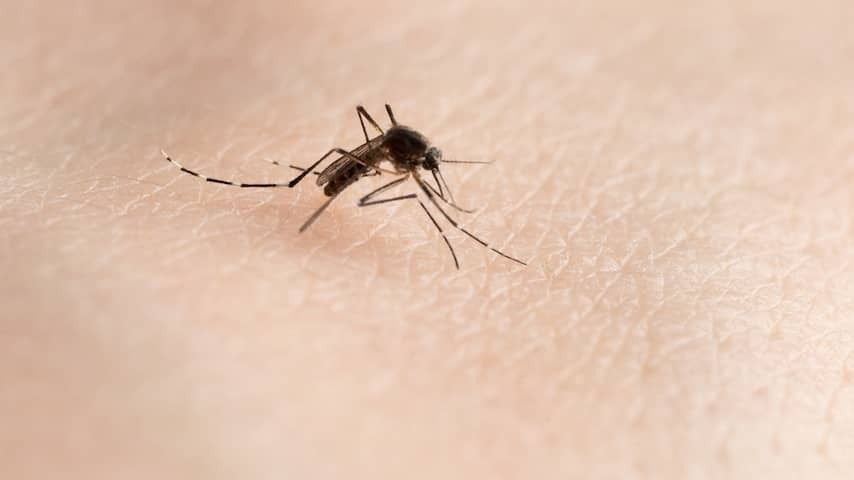
In Italy, ten people have died this year from the West Nile virus. Mosquitoes that transmit the virus thrive in the increasingly warmer Europe. However, only a small group of infected people become seriously ill. “Just treat them like normal mosquitoes,” experts say.
Experts from the RIVM emphasize that the health risks of the West Nile virus are small. Four out of five infected people do not experience any symptoms.
West Nile fever causes mild flu-like symptoms, such as fatigue, fever, or diarrhea, in 19 percent of all cases. In approximately 1 percent of cases, someone can become seriously ill. This relatively often involves the elderly or people with reduced resistance.
In severe cases, encephalitis or meningitis can occur. In those cases, the chance of death is 4 to 14 percent, according to the RIVM. In people aged seventy or older, this can rise to 15 to 29 percent.
The West Nile virus causes deaths mainly in the south and in the Balkans in Europe. The peak was in 2018 with 166 deaths, according to the European Center for Disease Prevention and Control (ECDC). In 2024, there were 125 deaths.
The number of infections and deaths fluctuates. However, the number of countries where the virus appears is increasing. Last year, Albania and the Czech Republic saw their first cases of infection.
Virus has spread around the world since the last century
The West Nile virus was initially found mainly in Africa. Since the end of the last century, the virus has spread around the world. This is partly due to climate change, which has led to more mosquitoes. “The virus is slowly moving north,” virologist Marc Van Ranst and mosquito expert Bart Knots tell NU.nl.
The West Nile virus has already been detected in the Netherlands. In 2020, the virus was detected in a house sparrow on Dutch soil. Shortly afterwards, the first infections in humans followed. In the years that followed, the virus was no longer found in humans, but in some animals, such as horses and birds.
Due to the warmer winters, more mosquitoes survive the coldest season, says Van Ranst. “This summer there are high temperatures with heavy showers, ideal conditions for mosquitoes.” Stagnant water is also important for the insects, adds Knots. “That’s where they lay their eggs.”
Throw away stagnant water
In the United States, the virus spread throughout the country in five years. Between 1999 and 2024, approximately three thousand (mainly vulnerable) Americans died from the effects of the West Nile virus.
Knots attributes the rapid spread to the warm climate in a large part of the US. He is not shocked by the high death toll. “The US is of course gigantic,” says the mosquito expert.
Vaccination or medication against the virus does not yet exist. In the US, researchers have been working on the development of a vaccine since 2003, Knots knows. Normally such research goes much faster. But the economic gain is small, Van Ranst adds. “Then little money goes to those studies, and it takes longer.”
Knots has no remarkable tips for Dutch people. According to him, people can tackle the mosquito in the same way as the ‘Dutch house mosquito’. He mentions insect spray or sleeping under a mosquito net. In addition, the mosquito expert advises regularly replacing or removing stagnant water, as far as possible.
Spread of virus by mosquitoes and birds
The West Nile virus has spread rapidly in recent years because birds originally carry it. They migrate to countries or continents where they are then bitten by local mosquitoes. They transmit it back to people. The virus is not transmitted from person to person.